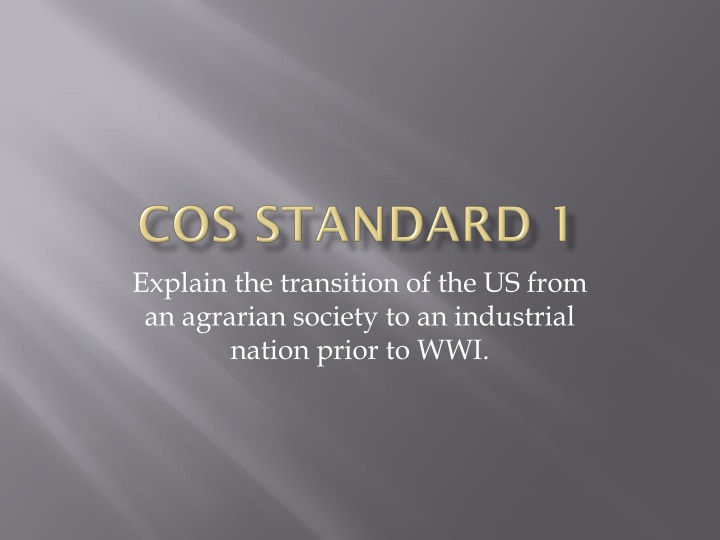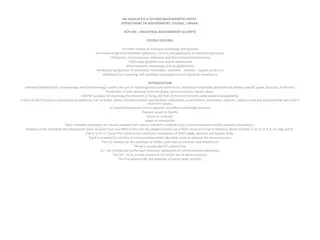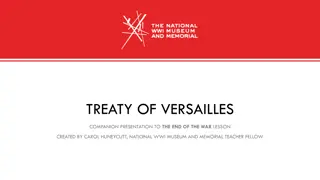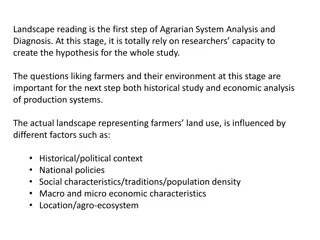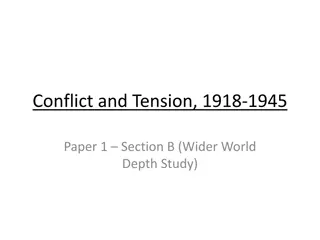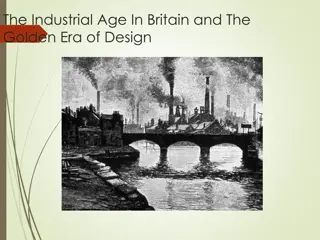Transition of the US from Agrarian Society to Industrial Nation before WWI
The US transitioned from an agrarian society to an industrial nation before WWI due to factors like natural resources, expansion of industries after the Civil War, and the rise of corporations, trusts, and holding companies. Labor movements, trade unions, and strikes played a significant role in shaping labor rights and working conditions during this period.
Download Presentation

Please find below an Image/Link to download the presentation.
The content on the website is provided AS IS for your information and personal use only. It may not be sold, licensed, or shared on other websites without obtaining consent from the author.If you encounter any issues during the download, it is possible that the publisher has removed the file from their server.
You are allowed to download the files provided on this website for personal or commercial use, subject to the condition that they are used lawfully. All files are the property of their respective owners.
The content on the website is provided AS IS for your information and personal use only. It may not be sold, licensed, or shared on other websites without obtaining consent from the author.
E N D
Presentation Transcript
Explain the transition of the US from an agrarian society to an industrial nation prior to WWI.
Group of 20 different trade unions Leader Samuel Gompers Small gains Stay out of politics 3 goals: Get companies to recognize unions and agree to collective bargaining Push for closed shops (hire only union members) Promote 8 hour work day
Leader: Bill Haywood Nicknamed the Wobblies Labor union for skilled and unskilled workers Mining and lumber workers Goal: ultimate destruction of the state and replace it with one big union
Railroad workers created the America Railway Union; Pullman Palace Car Company. Recession caused the company to cut wages, people boycott, hurt railroads and economy. End boycott: US mail cars were attached to Pullman cars. Result: ends boycott, strike and union.
Nationwide strike to support 8 hour workday There is a meeting the next day to protest the killing and a bomb is thrown by an unknown person (suspect is a Knights of Labor member) Seven police officers and several workers die Knights of Labor decline
After the Civil War, industry expands and millions of Americans move to the cities for work. Water, timber, coal, iron and copper are natural resources that lead the US to industrialize. Petroleum demands create the oil industry. Entrepreneurs were people who risked their money to organize and run a business. American industries grew and were highly competitive. They encourage free trade.
A corporation is an organization owned by many people. They sale stock which are shares of ownership. (Coke) A monopoly occurs when a company gains control of the entire market. (Microsoft) A trust merges businesses without violating laws against owning other companies. A trust allows a person to manage another person s property. (Standard Oil) A holding company owns the stock of companies that produce goods.
Reasons why Unions formed US experiences deflation Deflation caused prices to fall Companies cut wages Improve working environment meant organizing unions.
John D. Rockefeller: Standard Oil Andrew Carnegie: US Steel, Bessemer Process, the Gospel of Wealth, philanthropy Samuel Gompers: leader of AFL Eugene V. Debs: founder of American Railway Union A. Philip Randolph: organized March on Washington Movement to end racial discrimination in defense industries
Alexander Graham Bell: telephone Thomas Alva Edison: invented/perfected phonograph, light bulb, electric generator, dictaphone and motion picture
